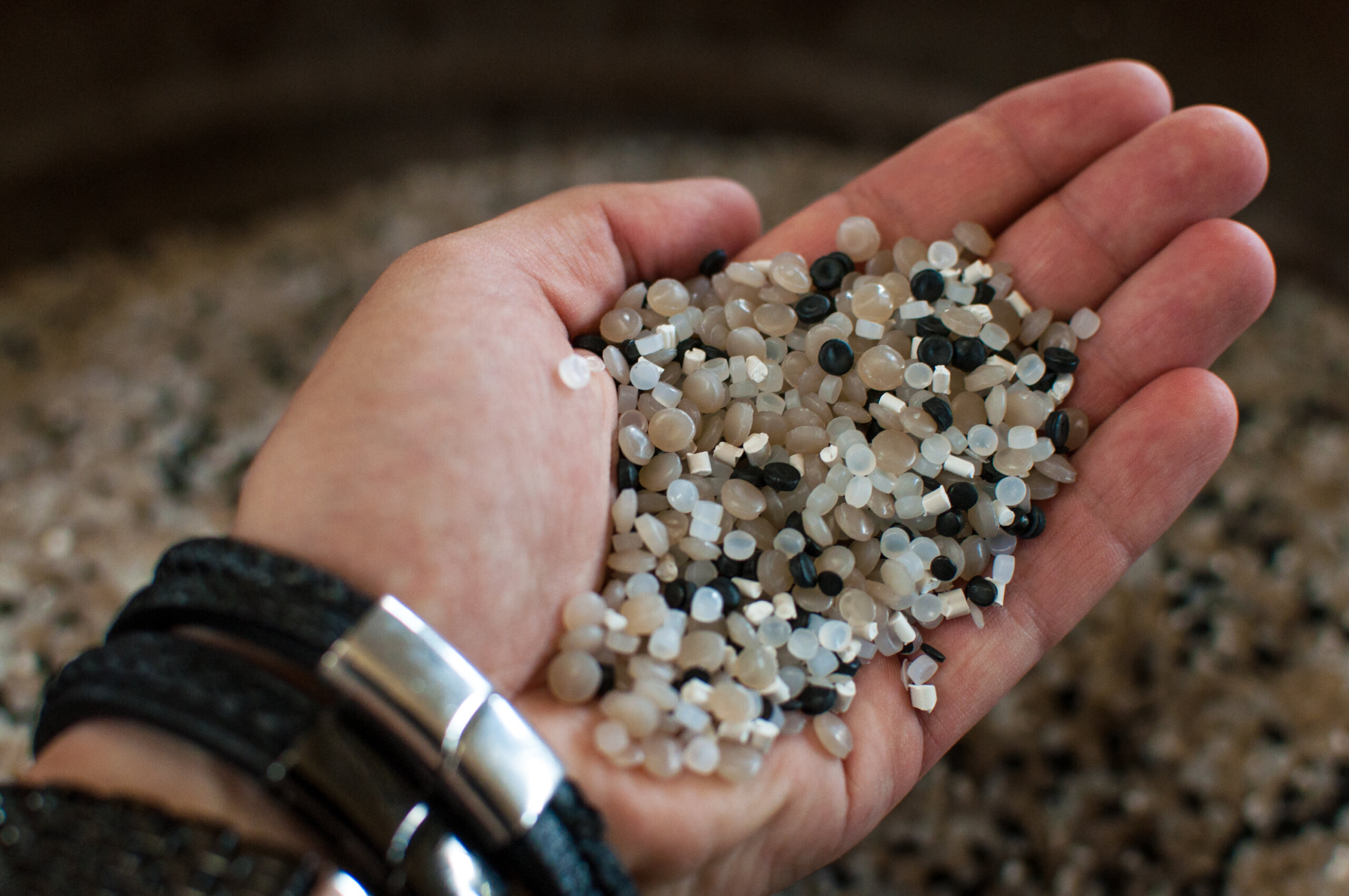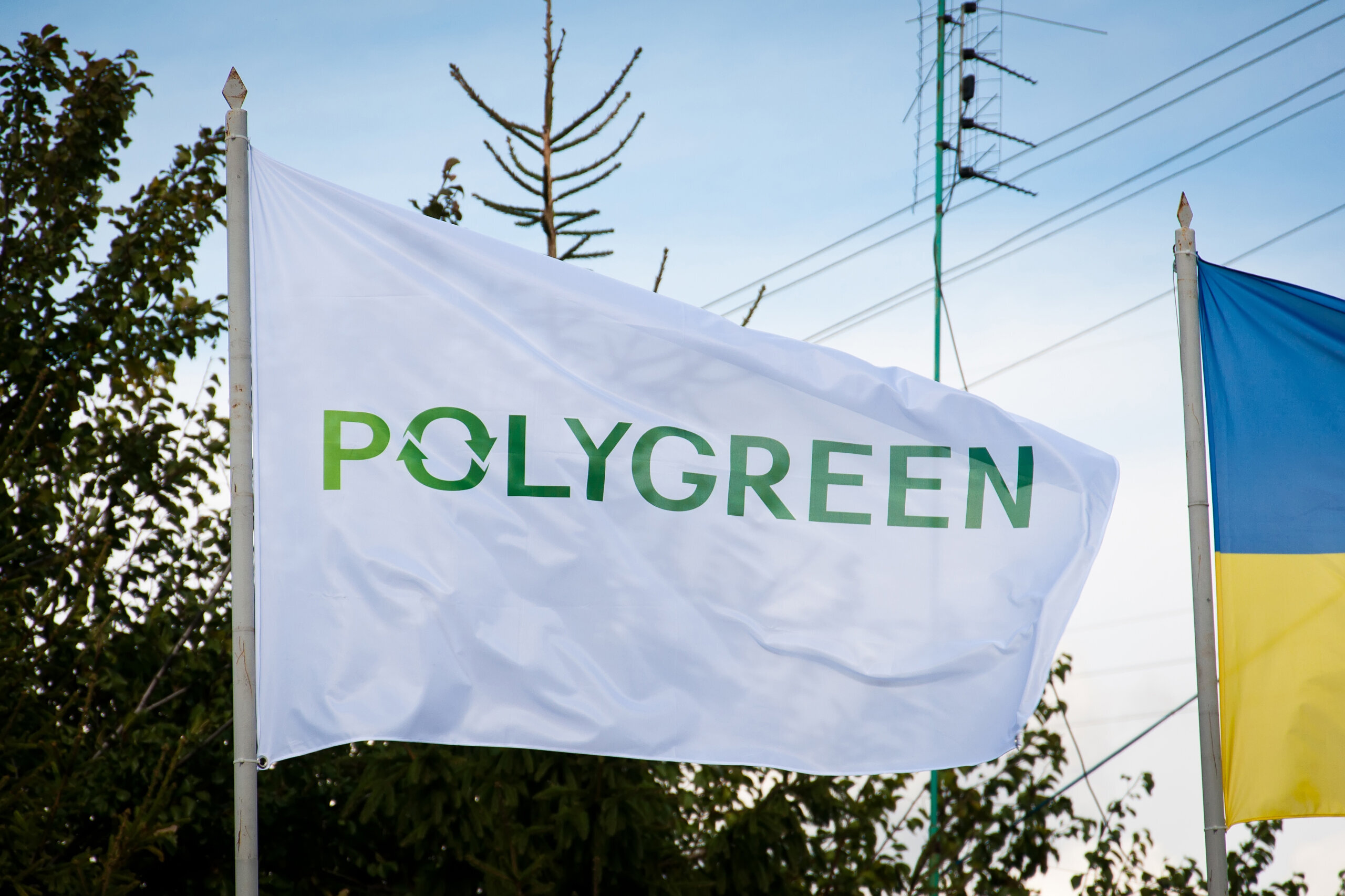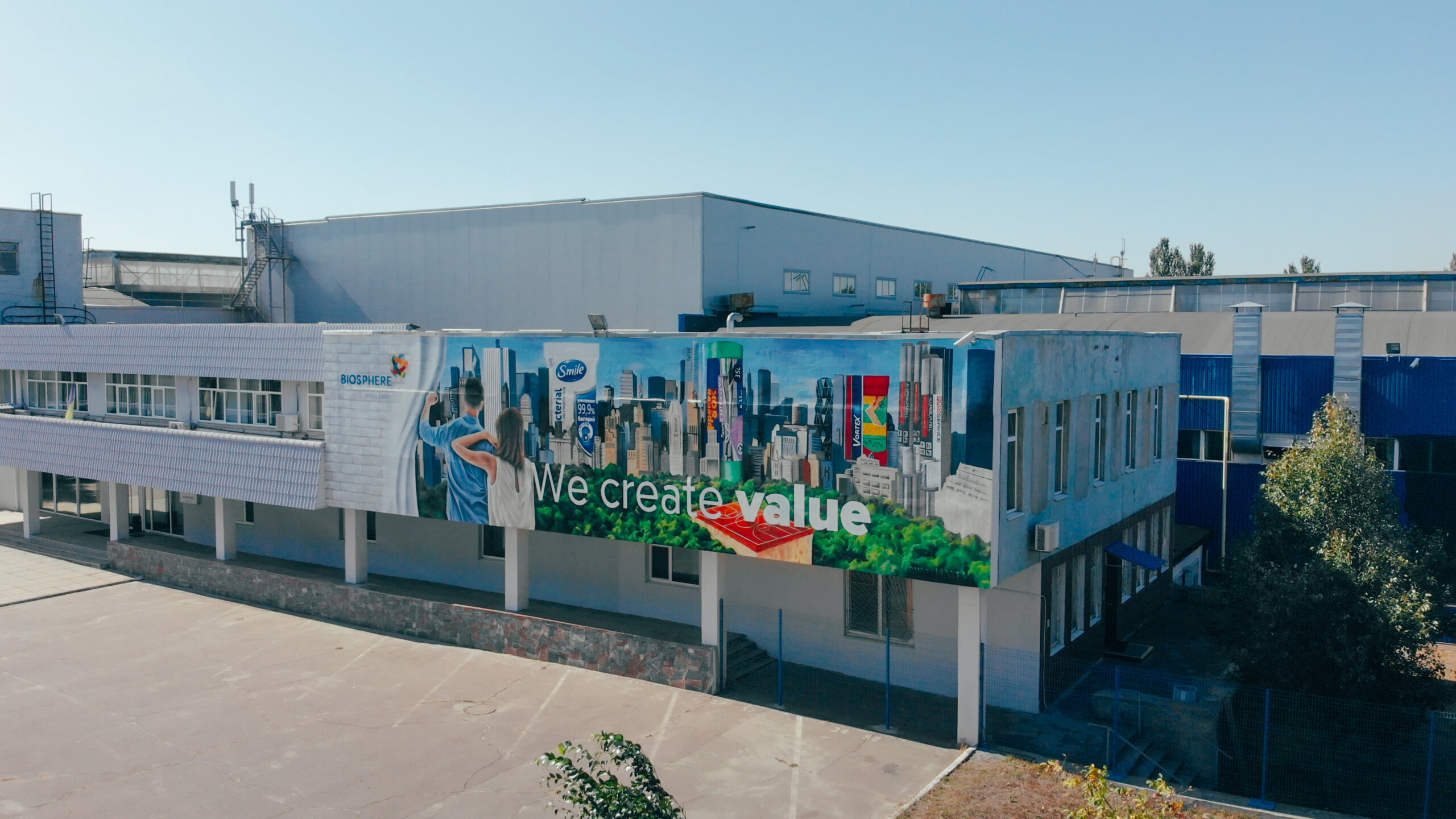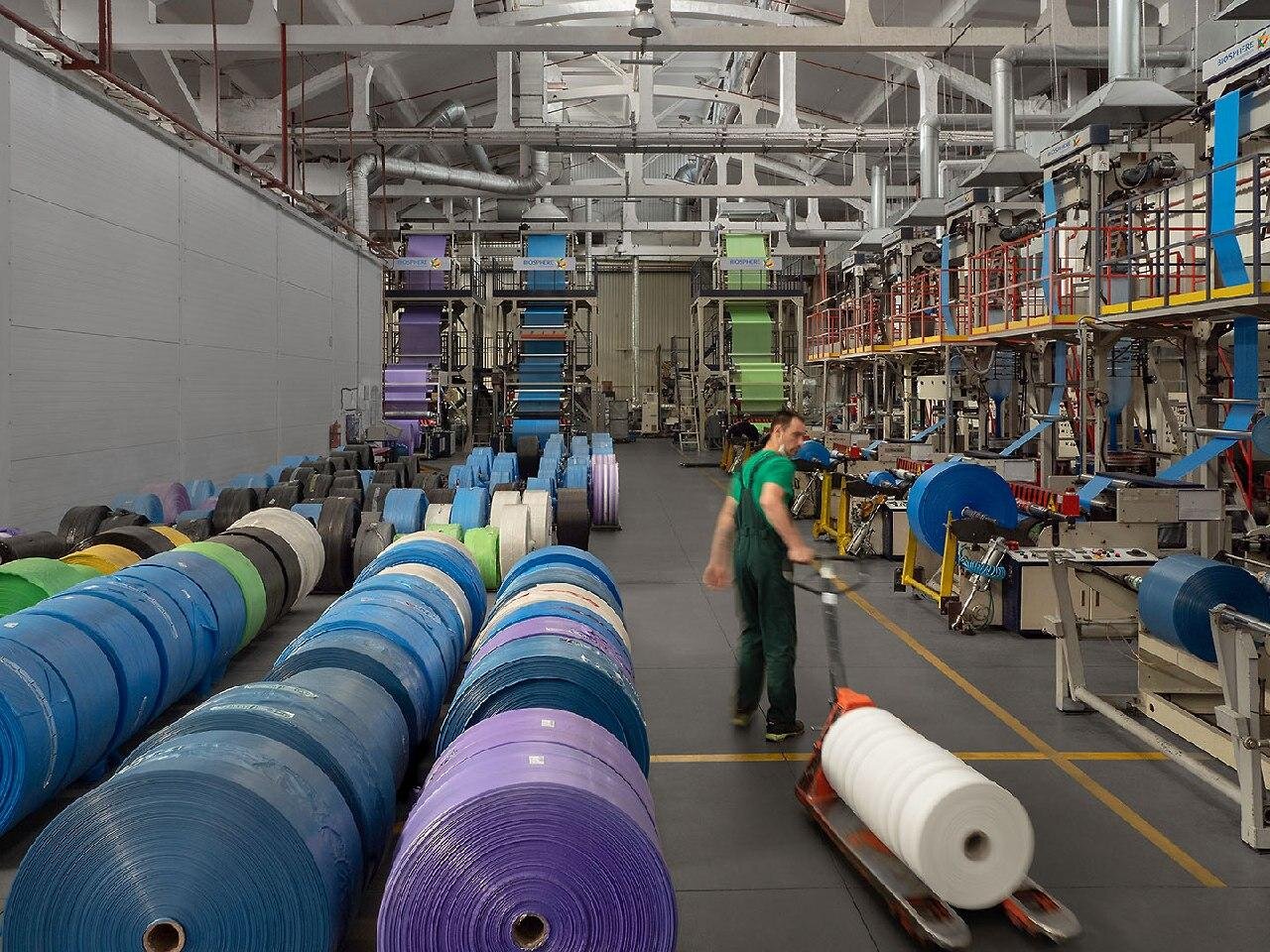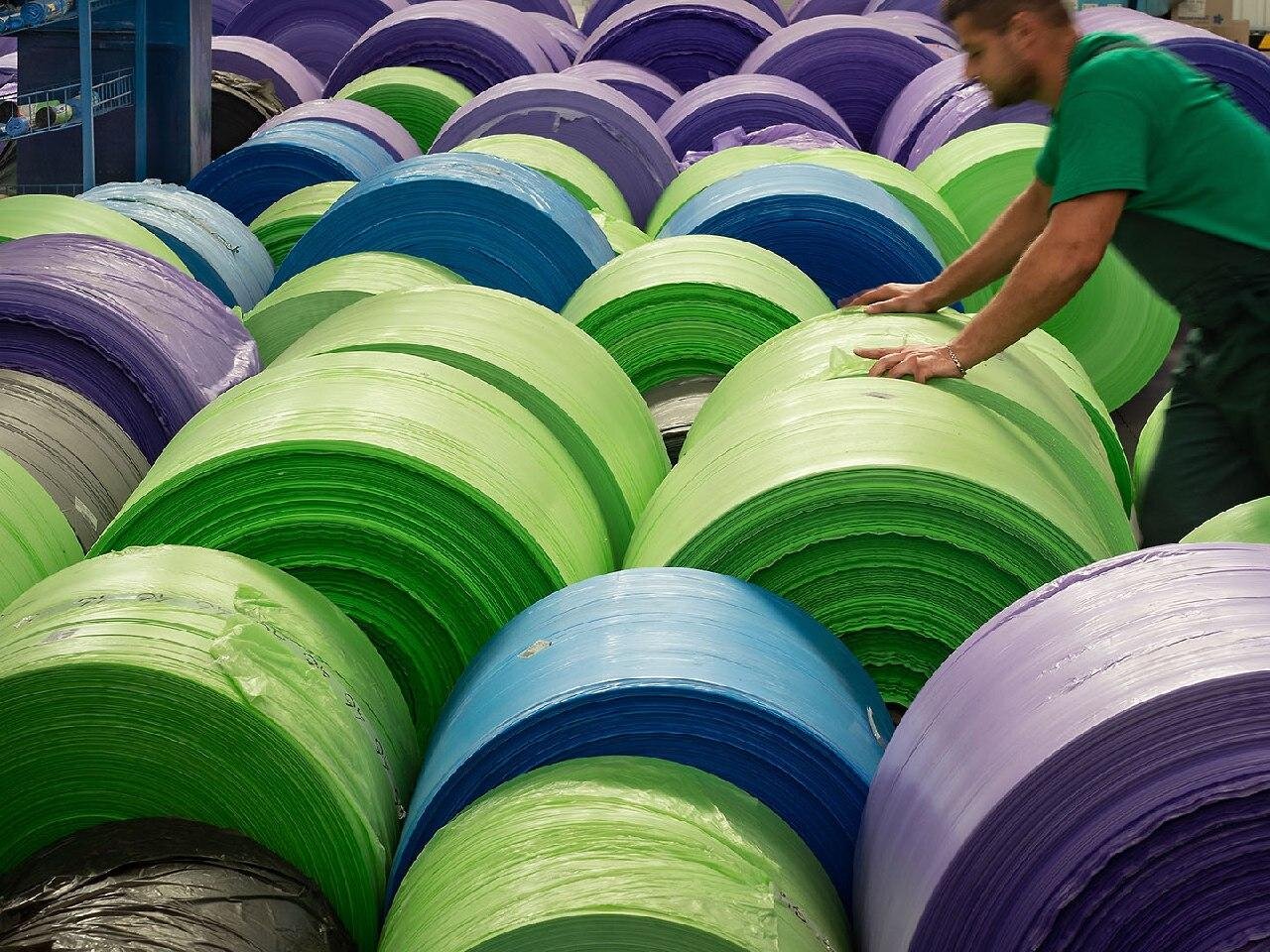
Yuriy Golianych, General Manager Household & Recycling, Biosphere corporation
How effective is your business in terms of reusing resources?
In Biosphere corporation, we built vertical integration into our main business.
Our Polygreen plant in Fastiv (Kyiv Oblast) is the largest polymer recycling facility in Ukraine. Since 2014, it has been recycling nearly 800 tons of plastic waste every month. There are modern equipment and powerful filters installed in the plant, making recycling completely safe for the environment.
We make recycled polyethylene granules, and up to 100% of them are used in our household business – the production of garbage bags. Every single garbage bag of Biosphere household brands – Freken BOK, Service Pro, Like It – consists of recycled granules (from 50% to 100%), which closes the recycling loop.
Despite Biosphere itself being the producer of plastic goods, we keep the balance. Polygreen plant recycles two times more plastic than our biggest manufacturing facility in Dnipro produces.
Generally, the process looks good and we are proud to be such an example of sustainability. Still there is an issue: in Ukraine, the quality of waste has huge room for improvement. The waste we collect for recycling in Ukraine is expensive but also is of a poor quality, so we supplement it with imported resources.
For Biosphere, being a Ukrainian company and one of the leaders of hygiene and household manufacturing in Eastern Europe & Central Asia, it is strange to import waste while Ukrainian landfills are full of it.
We consider this puzzle to lack the most important parts: culture and infrastructure.
The culture of waste sorting is still in its early stages. Year after year, we see more consumers supporting “eco-friendly” trends, but most of them are not ready to stand in line at the waste sorting station on the other side of the city every weekend. Moreover, the majority of consumers who consider themselves to be eco-friendly are still not ready to pay more for “green” products. We see a vivid example with our “Go Green” product line, which is completely ECO (100% biodegradable garbage bags), but still makes up only 1% of our garbage bags sales. As the manufacturer, we are paying more attention to this topic, and encouraging consumers to be responsible and conscious should become a new normal for FMCG, retail, HoReCa and other industries.
We know that culture shift is not a one-time action, and should be supported by government with basic viable laws, sets of rules, proper communication and execution control. At the moment, while we have no effective legal framework, I am sure city councils have the potential to influence the situation on the city level. Recycling requires sorting infrastructure as a first step, and here recycling businesses are ready to build winning partnerships with municipalities. We are looking for high-quality waste resources, and municipal waste management companies do have leverage to encourage the population to change their habits – and here we are able to reach the “win-win” scenario.
However, the issue of culture is not only about consumers and household waste. The potential of industrial waste sorting is huge enough. The majority of large Ukrainian companies who produce a lot of polyethylene waste do not perceive it as a resource – they do not reuse or recycle it, and do not sell it for recycling either. Up to the moment when industrial sorting and recycling will become obligatory, it still remains each company’s responsibility. All polyethylene waste from our production facilities are being sorted and taken back to Polygreen for recycling, and we have years of expertise in this issue and are ready to share our experience.
It is important to understand: there is no solution to make the current level of plastic consumption “green” or “safe enough.” But this waste should become a resource!
The state policy on waste management should create conditions which make businesses invest money in working with garbage as a resource, and which make excessive consumption of plastic affect the wallet of every Ukrainian. Then our citizens will be motivated to sort waste or else pay for it to be handled by specialized companies, at the same time limiting their consumption.
Recyclers will stop importing garbage from abroad due to the lack of quality-sorted waste in Ukraine, and industrial composting will become an attractive business. The state budget will increase, and Ukrainian land and water will receive less slowly decaying plastic. This looks like a long-term win-win to me.

